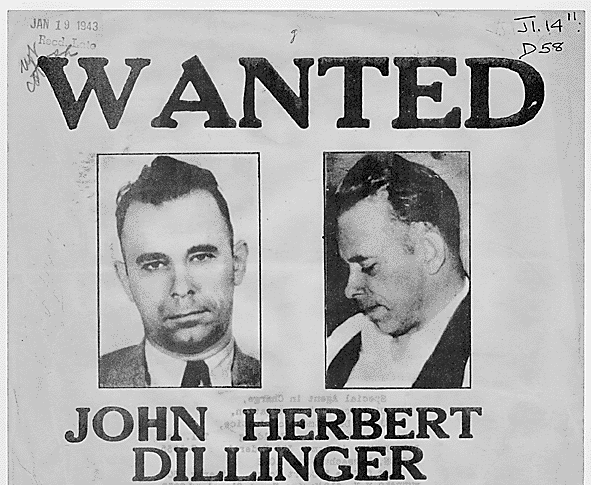In the 1930s, the US government, namely, the Bureau of Investigation, recognized John Dillinger as Public Enemy Number 1. Leader of the Dillinger Gang during the Great Depression, he allegedly led the robbery of twenty-four banks and four police stations. It was Dillinger’s exploits that prompted J. Edgar Hoover to expand the name and scope of the Bureau of Investigation to the FBI.

When Jesus introduced Himself and the Kingdom of Heaven to the generation of Jews desperate for the promised Messiah, Israel was, doubtless, unified as to who their public enemy number one was: Rome. But Jesus upset many when He revealed that He didn’t come to overthrow Rome; rather, He came to free them from a different oppressor, personal enemy number one: sin.

Jesus brought all kinds of surprises with His Messianic mission, not the least of which being a focus on the personal rather than the public. He didn’t correct all the injustices or malfunctions in broader society, but instructed His followers to forgive and give extra to those who mistreated them. Rather than reform the practices of the Pharisees (law enforcement officers of the Law of Moses), Sadducees (like Pharisees but differing in theology) , Essenes (diplomatically anti-Rome) and Zealots (militantly anti-Rome), Jesus taught that Jewish citizens should concentrate their efforts on personal repentance and receiving God’s kingdom in their hearts. He was clearly focused on the personal over the public, the relational over the religious.
Samson and David, though not contemporaries, were both warriors who led God’s people, each in their day. Something else they had in common is that they were very successful fighting their number one public enemy – both, the Philistines – but failed miserably against their number one personal enemy – lust.

It happens similarly in the modern-day church. Some Christians take a strong stand against the “public” issues they see as a threat to Christian decency but tolerate skeletons of secret sins in their own closets. Although I’m using the pronoun “they,” it’s “my” sins that God addresses with me. What sin should I be most concerned with? Mine. Should I love the sinner and hate the sin? Fine, but I must be sure to love people much louder than I hate anyone’s sin.
Jesus thematically answered questions or complaints about the system (secular or religious) by directing them to the personal. Who made Me judge of your civil matters; just be willing to take the loss…your righteousness must exceed that of the Pharisees… let the one without sin cast the first stone…neither do I condemn you; go and sin no more…sell all that you have and give it to the poor, then come follow Me.

As the Holy Spirit continues the ministry of Jesus, He works in us in the most personal way. That’s one reason why He dwells within us rather than merely among us. He’s situated right there in our hearts, where we think and feel, where He can sense most closely our purity of heart or ungodly attitudes.
God being so close to us and caring so much about our heart’s condition and contents, He certainly will help us understand what our individual personal enemy number 1 is. He recently pointed mine out to me, and once He did, it became clear that it was my top priority in spiritual warfare. It’s that particular fiery dart that my shield of faith must extinguish. Since having that understanding and strategy, I’ve been more successful in maintaining purity of heart.

So, I invite you to seek God about yours. Is it offense and bitterness, greed and materialism, laziness and idleness, gluttony and pleasure, lust and destructive attraction? The Holy Spirit will show you, I guarantee, and without condemnation, but with grace.
The question: what’s your personal enemy number 1?

